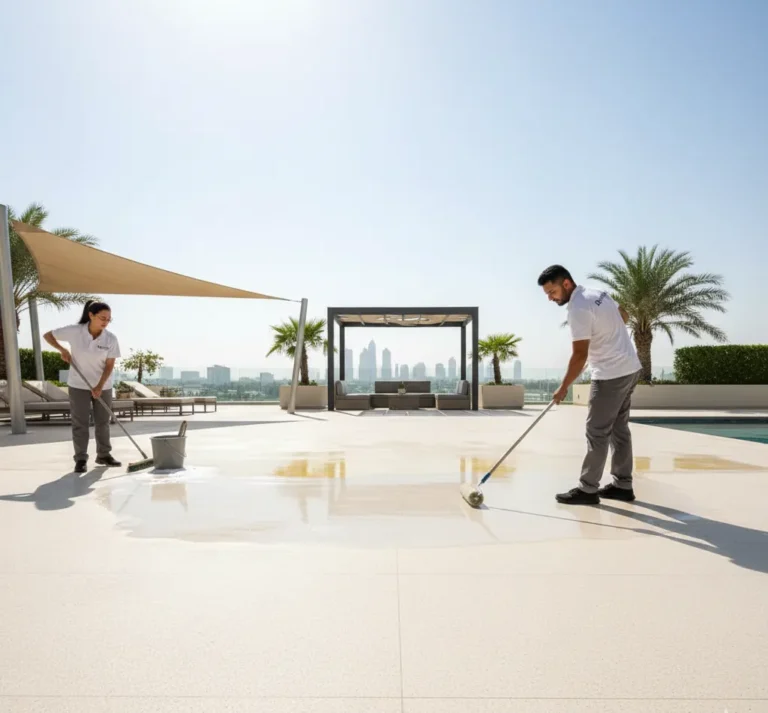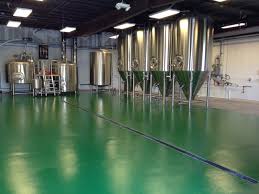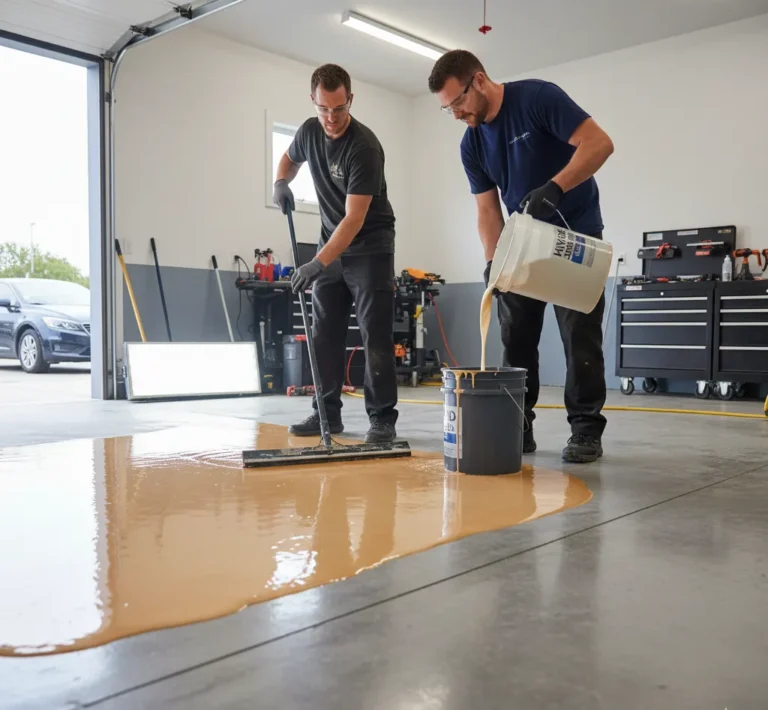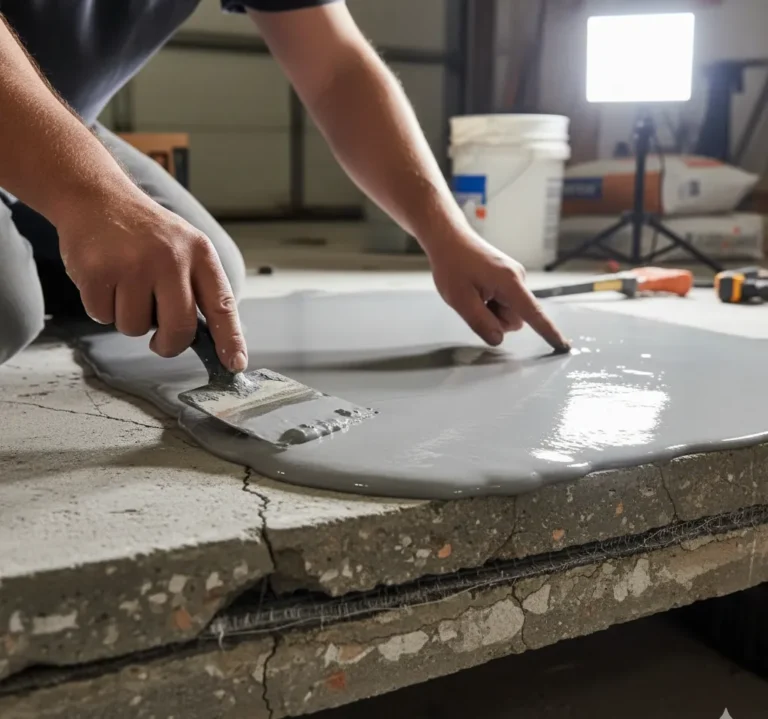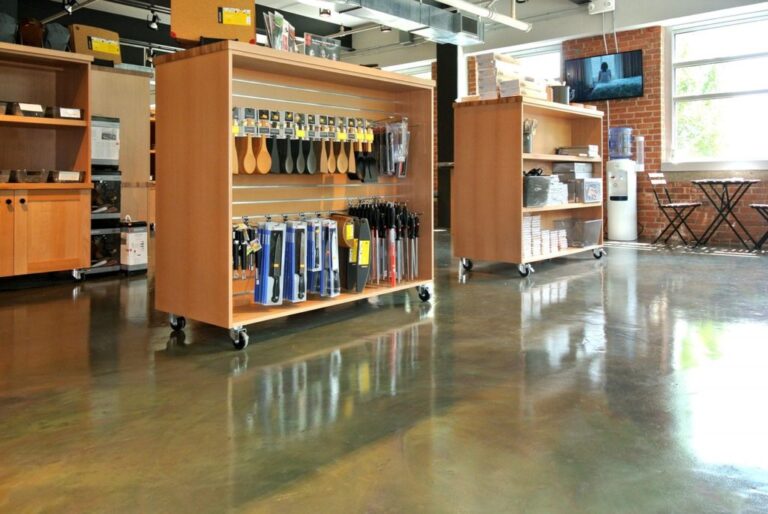Polyurea coating is a revolutionary protective layer that has gained significant popularity in recent years for its exceptional durability and versatility. This high-performance coating is derived from the reaction between an isocyanate component and a resin blend component, resulting in a robust and flexible material that adheres strongly to various surfaces, particularly concrete floors.
As the demand for long-lasting and resilient floor coatings continues to grow, polyurea has emerged as a top choice for both residential and commercial applications. Its unique properties make it an ideal solution for protecting concrete floors from damage caused by heavy traffic, chemical spills, and environmental factors.
What is Polyurea Coating
Polyurea coating is a type of elastomer that is applied as a liquid and quickly cures to form a solid, seamless membrane. This coating is known for its rapid curing time, excellent chemical resistance, and superior durability compared to traditional floor coatings.
Types of Polyurea Coatings
There are several types of polyurea coatings available, each designed for specific applications:
- Spray-applied polyurea
- Self-leveling polyurea
- Joint filler polyurea
- Waterproofing polyurea
These different types offer varying levels of flexibility, hardness, and chemical resistance, allowing for customized solutions to meet specific project requirements.
Pure Polyurea vs Hybrid Polyurea
When considering polyurea coatings, it’s essential to understand the difference between pure polyurea and hybrid polyurea:
- Pure Polyurea: Made entirely from polyurea components, offering the highest level of performance and fastest curing times.
- Hybrid Polyurea: Combines polyurea with other materials like polyurethane or epoxy, providing a balance of properties and often a more cost-effective solution.
|
Property |
Pure Polyurea |
Hybrid Polyurea |
|
Curing Time |
Extremely fast (seconds) |
Fast (minutes to hours) |
|
Flexibility |
Very high |
Moderate to high |
|
Chemical Resistance |
Excellent |
Good to excellent |
|
Cost |
Higher |
Lower |
Benefits of Polyurea Coating
Polyurea coating offers numerous advantages that make it an attractive option for protecting concrete floors and other surfaces.
Durability and Longevity
One of the most significant benefits of polyurea coating is its exceptional durability. This coating can withstand heavy foot traffic, vehicular traffic, and impact without showing signs of wear or degradation. Polyurea-coated surfaces can last for many years with minimal maintenance, making it a cost-effective solution in the long run.
Chemical Resistance
Polyurea coatings exhibit excellent resistance to a wide range of chemicals, including acids, alkalis, and solvents. This property makes them ideal for use in industrial environments where chemical spills are common, as well as in residential settings where household cleaners and automotive fluids may come into contact with the floor.
Fast Curing Time
Unlike traditional coatings that may take days to fully cure, polyurea coatings can cure in a matter of seconds to minutes. This rapid curing time allows for minimal downtime during installation, making it an excellent choice for businesses that cannot afford extended periods of inactivity.
- Reduced installation time
- Quick return to service
- Minimal disruption to operations
Applications of Polyurea Coating
Polyurea coating’s versatility makes it suitable for a wide range of applications across various industries.
Garage Floor Coating
Polyurea is an excellent choice for garage floor coatings due to its ability to withstand the harsh conditions typically found in garages. It resists stains from oil, gasoline, and other automotive fluids while providing a slip-resistant surface that enhances safety.
Industrial Flooring
In industrial settings, polyurea coatings offer unparalleled protection against heavy machinery, chemical spills, and constant foot traffic. They can be applied to concrete floors in warehouses, manufacturing facilities, and food processing plants to create a durable, easy-to-clean surface.
Waterproofing and Corrosion Protection
Polyurea’s seamless application and excellent water resistance make it an ideal choice for waterproofing applications. It can be used to protect concrete structures, metal surfaces, and even wood from water damage and corrosion.
- Bridge decks
- Parking structures
- Secondary containment areas
- Marine environments
Polyurea Coating vs Other Floor Coatings
When choosing a floor coating, it’s important to compare polyurea with other popular options to determine the best solution for your needs.
Polyurea vs Epoxy
While both polyurea and epoxy are popular choices for floor coatings, they have distinct differences:
|
Feature |
Polyurea |
Epoxy |
|
Curing Time |
Minutes |
Hours to days |
|
Flexibility |
High |
Low |
|
UV Resistance |
Excellent |
Poor to moderate |
|
Temperature Resistance |
Wide range |
Limited range |
|
Application Temperature |
Wide range |
Narrow range |
Polyurea vs Polyurethane
Polyurea and polyurethane share some similarities but differ in key aspects:
- Curing Time: Polyurea cures faster than polyurethane
- Durability: Both offer excellent durability, but polyurea generally outperforms polyurethane in extreme conditions
- Chemical Resistance: Polyurea typically has better chemical resistance
- Cost: Polyurea is often more expensive than polyurethane
How to Apply Polyurea Coating
Proper application of polyurea coating is crucial for achieving optimal performance and longevity.
Surface Preparation
Thorough surface preparation is essential for ensuring proper adhesion of the polyurea coating. This typically involves:
- Cleaning the surface to remove dirt, grease, and contaminants
- Repairing any cracks or damage in the concrete
- Profiling the surface through shot blasting or diamond grinding
- Applying a primer if necessary
Application Process
The application of polyurea coating usually involves specialized equipment and trained professionals. The process typically includes:
- Mixing the polyurea components
- Spraying or pouring the coating onto the prepared surface
- Spreading the coating evenly
- Adding decorative elements if desired (e.g., color flakes)
Curing Time
One of the advantages of polyurea coating is its rapid curing time. Most polyurea coatings are fully cured and ready for foot traffic within 24 hours, with some formulations allowing for use in as little as one hour after application.
Polyurea Coating Color Options
Polyurea coatings offer a wide range of color options to suit various aesthetic preferences and functional requirements.
Solid Colors
Solid color polyurea coatings are available in a vast array of hues, from neutral tones to vibrant shades. These colors can be customized to match existing decor or branding requirements.
Color Flakes and Decorative Options
For added visual interest and slip resistance, color flakes or decorative quartz can be broadcast into the wet polyurea coating. This creates a speckled or terrazzo-like appearance and can help hide minor imperfections in the substrate.
- Solid color base with contrasting flakes
- Multi-colored flake blends
- Metallic pigments for a high-end look
Maintenance of Polyurea Coated Surfaces
Proper maintenance is key to ensuring the longevity and performance of polyurea coated surfaces.
Regular cleaning with mild detergents and water is usually sufficient to keep the surface looking its best. Avoid using harsh chemicals or abrasive cleaning tools that could damage the coating.
For commercial and industrial applications, periodic inspections should be conducted to identify any areas that may need touch-ups or repairs.
- Sweep or vacuum regularly to remove loose debris
- Clean spills promptly to prevent staining
- Use protective mats in high-traffic areas
- Reapply topcoat as needed (typically every 5-10 years)
Common Issues with Polyurea Coating and Solutions
While polyurea coatings are generally reliable, some issues may arise if not properly applied or maintained.
Bonding Problems
Poor adhesion can occur if the surface is not properly prepared or if the coating is applied in unfavorable conditions. Ensure thorough surface preparation and follow manufacturer guidelines for application temperatures and humidity levels.
Air Bubbles
Air bubbles can form in the coating if it’s applied too thickly or if the substrate has moisture issues. Use proper application techniques and address any moisture problems in the concrete before coating.
Partial Evaporation
In some cases, part of the coating may evaporate before fully curing, leading to an uneven finish. This can be prevented by applying the coating in optimal environmental conditions and using the correct mixing ratios.
Choosing the Right Polyurea Coating Product
Selecting the appropriate polyurea coating product is crucial for achieving the desired results and ensuring long-term performance.
Factors to Consider
When choosing a polyurea coating, consider the following factors:
- Application environment (indoor vs. outdoor)
- Expected traffic levels and types
- Chemical exposure risks
- Desired aesthetic appearance
- Budget constraints
- Required curing time
Duraamen’s Polyurea Coating Options
Duraamen offers a range of high-quality polyurea coating products designed to meet various application needs. Their products are known for their durability, chemical resistance, and aesthetic appeal. Microtopping depth calculation Commercial kitchens embrace microtopping to make their floors look new and shiny This thin layer of concrete helps protect kitchen floors from spills and heavy use
Microtopping profitability assessment helps businesses figure out if they can make money by adding thin layers of concrete to surfaces It looks at costs and potential earnings to see if microtopping is a good idea for the company Educational flooring solutions provide safe and durable surfaces for schools and learning spaces These floors are designed to be comfortable for students and easy to clean and maintain
Microtopping salon stations are special work areas for hairstylists that have a thin layer of concrete on top They make salon spaces look modern and are easy to clean Contemporary microtopping furniture uses a thin layer of special concrete to give a modern look to tables chairs and other pieces This style makes old furniture look new and smooth without changing its shape
Durable desk finishes protect your desk from scratches and stains Acoustic microtopping solutions are special coatings that make floors look smooth and nice while also helping to reduce noise in a room These thin layers can be applied to different surfaces to improve how they look and sound
Driveway makeover uberdek is a special coating that makes old driveways look new and shiny It helps protect your driveway from cracks and stains while giving it a fresh appearance
- Perdure U45: A fast-curing, UV-stable polyurea coating ideal for both indoor and outdoor applications
- Perdure U46: A high-performance polyurea coating with excellent chemical resistance for industrial environments
- Perdure P72: A flexible polyurea coating suitable for areas subject to movement or vibration
Environmental Impact of Polyurea Coating
As environmental concerns continue to grow, it’s important to consider the ecological impact of polyurea coatings.
VOC Content
Many polyurea coatings are formulated with low or zero volatile organic compounds (VOCs), making them more environmentally friendly than traditional solvent-based coatings. This low VOC content also contributes to better indoor air quality during and after application.
Sustainability Factors
Polyurea coatings contribute to sustainability in several ways:
- Long lifespan reduces the need for frequent reapplication
- Improved energy efficiency in buildings due to reflective properties
- Potential for use of recycled materials in some formulations
- Reduced waste due to fast curing and minimal overspray
FAQs
What is the lifespan of a polyurea coating?
The lifespan of a polyurea coating can range from 20 to 30 years when properly applied and maintained. This longevity is due to its exceptional durability and resistance to wear, chemicals, and environmental factors. However, the actual lifespan may vary depending on factors such as traffic levels, exposure to chemicals, and maintenance practices.
Can polyurea coating be applied over existing floor coatings?
In most cases, polyurea coating can be applied over existing floor coatings, provided the existing coating is well-bonded and in good condition. However, it’s crucial to properly prepare the surface by cleaning, sanding, and priming if necessary. For best results, it’s often recommended to remove the old coating entirely before applying polyurea, especially if the existing coating is deteriorating or incompatible with polyurea.
Is polyurea coating suitable for outdoor applications?
Polyurea coating is excellent for outdoor applications due to its UV resistance, flexibility, and ability to withstand extreme temperatures. It can be used on various outdoor surfaces such as concrete patios, pool decks, and walkways. The coating’s waterproofing properties also make it ideal for protecting outdoor structures from moisture damage and corrosion.
How much does polyurea coating cost compared to other floor coatings?
Polyurea coating typically costs more upfront than traditional floor coatings like epoxy or polyurethane. The price can range from AED 18 to 5 per square foot, depending on factors such as the specific product, surface preparation requirements, and application complexity. While the initial investment is higher, the long-term durability and reduced maintenance needs of polyurea often result in lower overall costs over the life of the coating.
